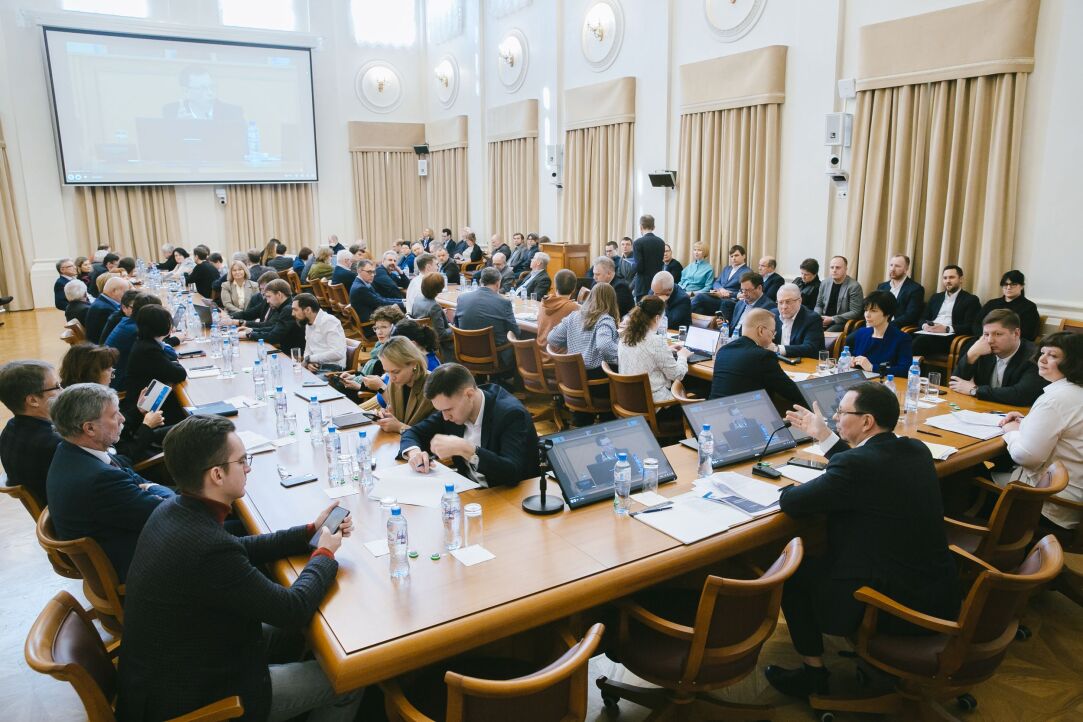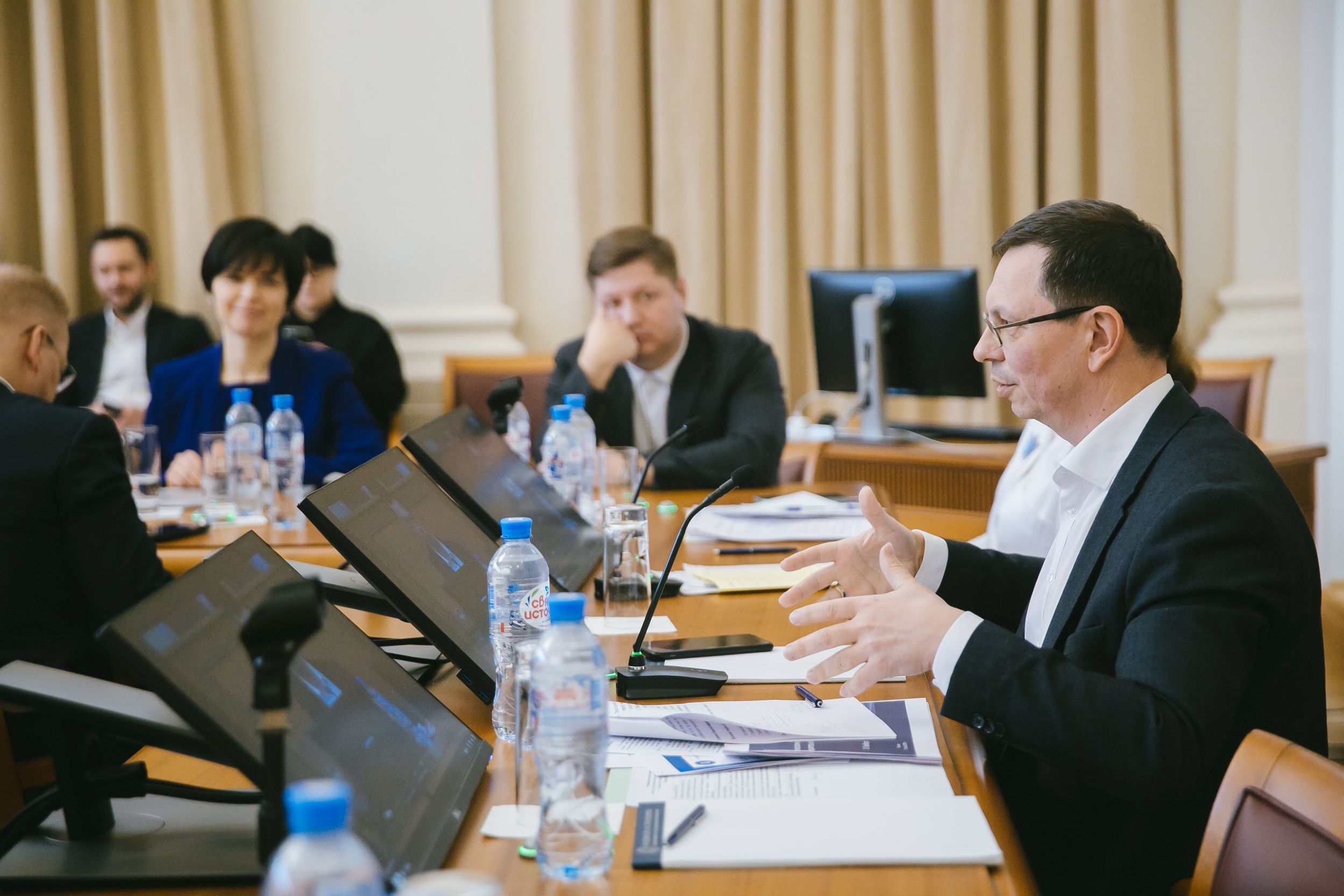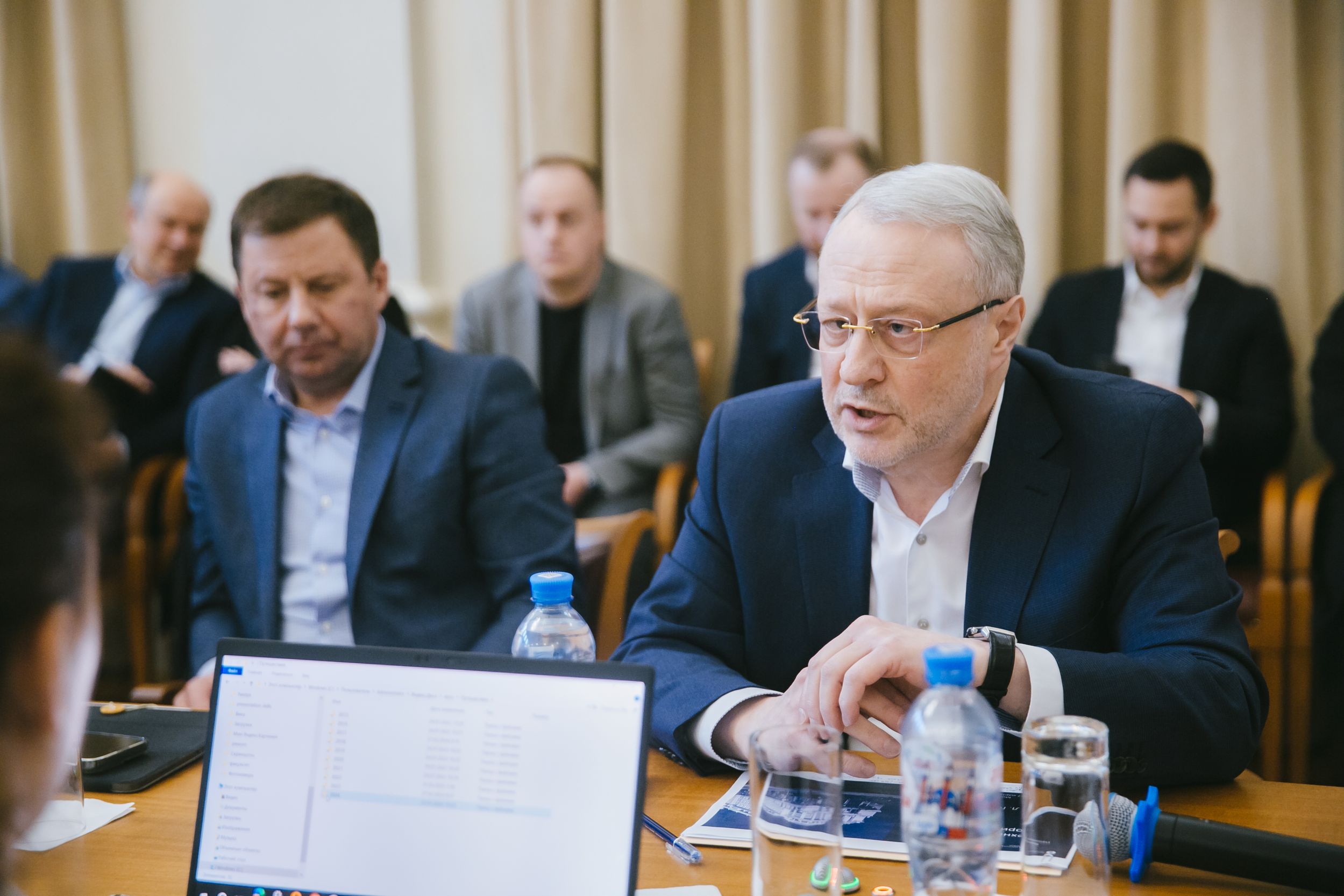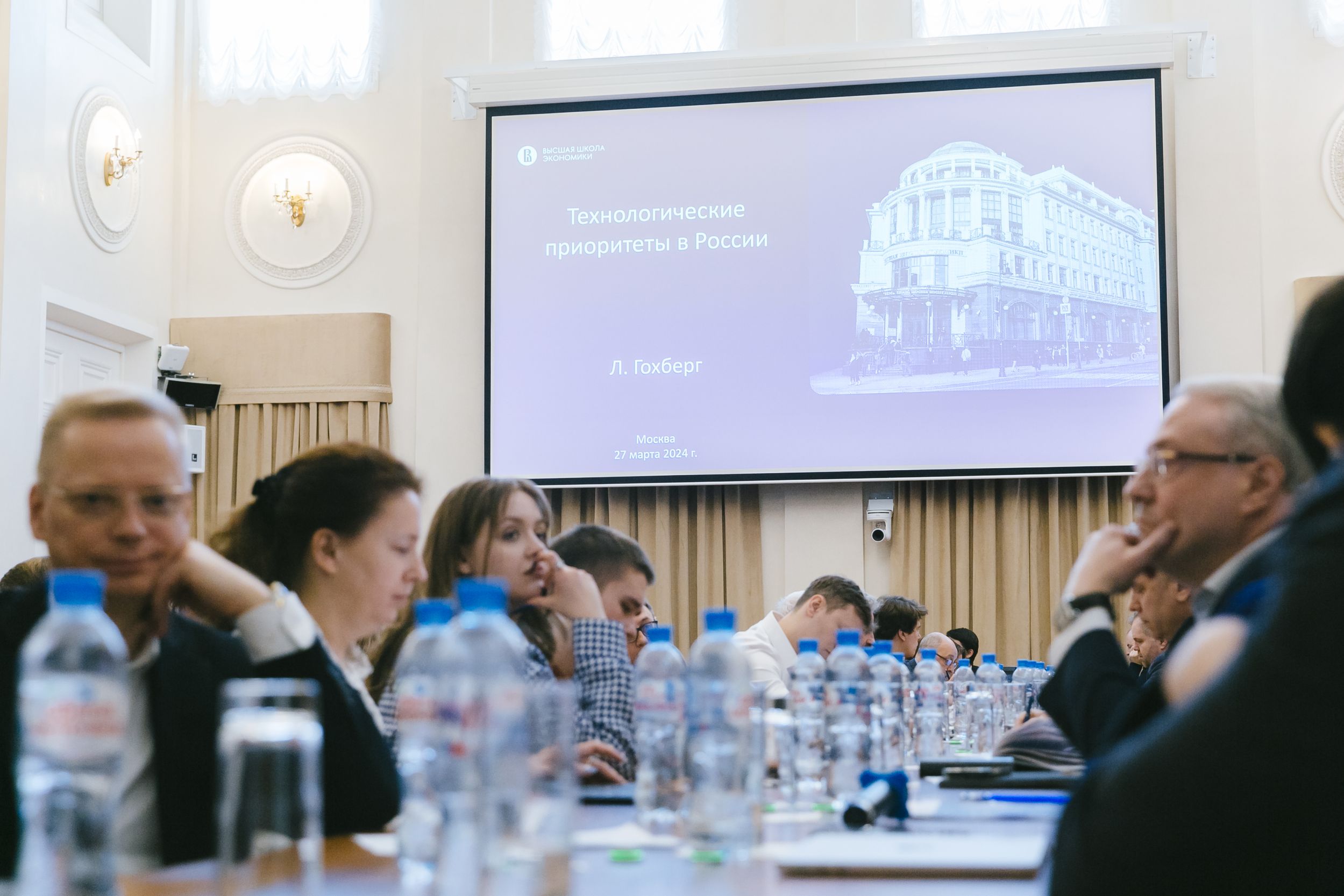Newly-Elected HSE Academic Council Examines National Technological Priorities

On March 27, 2024 the first meeting of the newly-elected HSE Academic Council was held. The meeting approved the list and composition of commissions responsible for the preliminary consideration of issues prior to their inclusion in the Council’s agenda. The attendees also discussed Russia's technological priorities and outlined ways for university staff members to participate in addressing technological development challenges.
HSE Rector Nikita Anisimov opened the meeting and took a moment to remind everyone of the tragedy that occurred last week at the Crocus City Hall. He noted that students and staff members from HSE University were present during the tragic incident—all of whom are alive, and some of them have received psychological assistance. The HSE Situation Centre started operating immediately after the terrorist attack. The members of the Academic Council honoured the memory of the victims with a minute of silence.

The meeting also marked the final formation of the new Academic Council, during which the rector signed the relevant order.
The Academic Council includes 135 members. 87 of them were elected at the HSE Staff and Student Conference, which took place on March 19, 2024, at Russia Expo; 20 were included by virtue of their positions within the HSE University Administration, and 28 were recommended by the Rector. The council includes campus directors, deans, the Director of the HSE Lyceum, and, for the first time, students.
The Academic Council has been renewed, with 67 individuals from its previous composition retained. Nikita Anisimov stressed that maintaining continuity is a crucial aspect of the council's operations.
During the meeting, the council ratified the list and structure of its commissions, which conduct preliminary consideration of issues before they are added to the agenda. The commissions can be either permanent or temporary, and over the last five years, they have deliberated on 2,298 issues. Members of the Academic Council had the opportunity to join multiple commissions based on their interests, with the commission on organising scientific research emerging as the most sought-after.
Leonid Gokhberg, First Vice Rector and Director of the HSE Institute for Statistical Studies and Economics of Knowledge, presented a report on Russia's new technological priorities. Based on this information, university staff members can outline objectives for their further endeavours.

‘The priority is still given to fundamental research, with an emphasis on practical results with a high level of technological maturity, which are in demand by the economy, the state, and society. This applies not only to technology-related departments of HSE University, but also to all aspects of our scientific agenda,’ emphasised Leonid Gokhberg.
He explained that the main vectors in this area are determined by the Concept of Technological Development of Russia until 2030, which was adopted last year.
Leonid Gokhberg highlighted projects related to technological sovereignty, including the localisation of aircraft, unmanned aviation systems, medicines, medical products, and more. These are full-cycle projects—from research to technological developments and product solutions, offering avenues for HSE University's participation.

This year marks the conclusion of the national programme ‘Digital Economy of the Russian Federation’, during which HSE University intensified its research and development in AI. It is set to be succeeded by the national project ‘Data Economy.’ This new project will continue to support research centres specialising in AI, offering scholarships for students and postgraduates, preferential access to computing resources, and more. Therefore, HSE University teams should be prepared to engage with it.
In final part of his presentation, Leonid Gokhberg assessed the dynamics of HSE University's publications in the field of AI. In terms of the number of publications in international journals, the university holds the top position in Russia, with about 40% of these publications presented at the most prestigious A* conferences, a milestone achieved in a remarkably short period.
‘We cannot rest on our laurels, aware that these leading positions might be surpassed tomorrow. The competition is intense, which demands from us a proactive approach, a focused effort, and a shift towards applied solutions,’ Leonid Gokhberg concluded.
